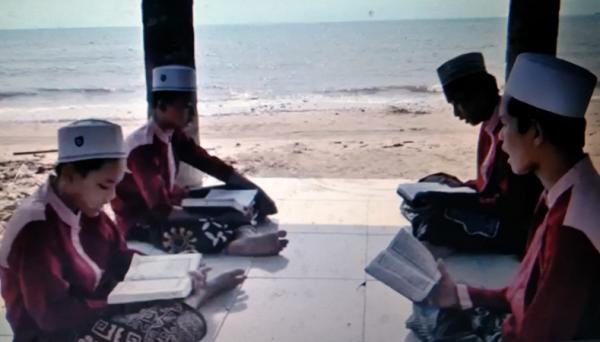Islamic boarding schools, or pesantren, in Indonesia today are flourishing like mushrooms in the rainy season. Not only are they numerous, but pesantren can also emerge in diverse environments and conditions. They can be found in mountainous areas, coastal regions, urban centers, and even in repurposed lands that once served as red-light districts. These institutions transform into sanctuaries of hope, radiating knowledge amidst the darkness of the times.
A kiai does not approach the establishment of a pesantren as a businessman would build an enterprise, focused on profit and loss. Strategic locations and market conditions are crucial for business ventures, as entrepreneurs understand that their products will experience highs and lows in response to changing times. However, a kiai and his pesantren are not bound by these dynamics. The core “commodity” of a pesantren—knowledge and blessings—remains eternally valuable. Therefore, a kiai is confident that the wellspring of knowledge will always attract seekers.

Coastal Areas
The varied locations of pesantren naturally endow them with unique characteristics shaped by their geographical contexts. Coastal pesantren are particularly distinctive. Coastal areas, often characterized by hot climates and suboptimal conditions, such as poor sanitation and limited access to clean water and air, might seem unsuitable for large communities like pesantren.
An example of such coastal pesantren is found in the Sarang region of Central Java. Located on the northern coast of Java, at the border of Central and East Java provinces, many pesantren thrive despite their coastal setting. Contrary to expectations, these pesantren are far from unpopular. Tens of thousands of students reside in Sarang, with thousands more joining this vibrant community at the start of each academic year.
The question arises: why do coastal pesantren, particularly those in Sarang, continue to thrive despite their challenging environments?
Santri’s Resilience
Have you ever observed how cacti survive? Unlike most plants, which thrive only in environments that meet their needs—water, sunlight, and nutrients for photosynthesis—cacti flourish in extreme conditions, such as deserts with very low rainfall.
The reason is simple. Cacti possess unique adaptive abilities, such as morphological adaptations. Their spines reduce water evaporation, enabling them to conserve water and survive for extended periods. Similarly, santri (students of pesantren) can be likened to cacti.
Santri are not different from ordinary people in terms of physical attributes, but their lifestyle is unique. Santri are a community that, ideally, should be as adaptive and resilient as cacti. They can survive in extreme environments, which would typically be unsuitable for such a community.
Santri, like cacti, can forego basic human norms such as eating three meals a day, bathing twice a day, and sleeping eight hours a night. Observing the lives of santri in northern coastal pesantren, it seems almost impossible for them to adhere to these routines. Exaggerated? Try joining the santri community there.
The Power of Conviction
Just as cacti survive in harsh environments due to their inherent abilities, santri thrive on their abilities and, crucially, their conviction. With conviction, what is impossible becomes possible.
This is a message constantly imparted by kiai and should be embraced by santri. Conviction is often underestimated, even by santri themselves. However, it possesses extraordinary power, as evidenced by numerous moral tales extolling the strength of faith.
Santri also uphold the principle that luxury is not a prerequisite for happiness. They learn to find happiness within, without relying on external factors. The standards of happiness for santri and non-santri differ, but it is essential not to impose or demand that others adhere to non-santri standards of happiness.
Respecting the autonomy of others’ happiness is crucial. Ultimately, santri may question: in a hot and impoverished environment like the coast, is there a prohibition against being happy?







